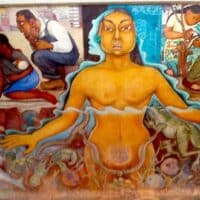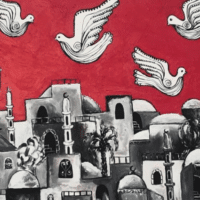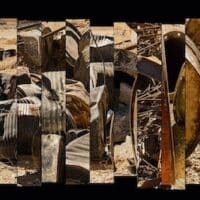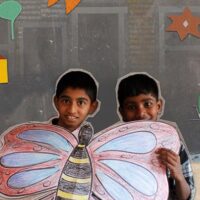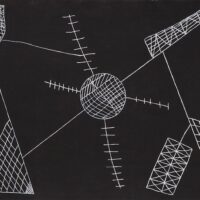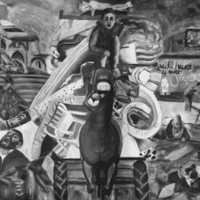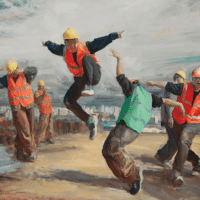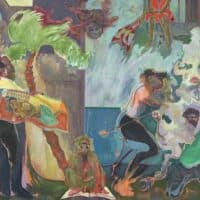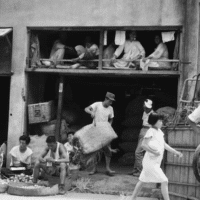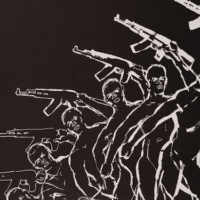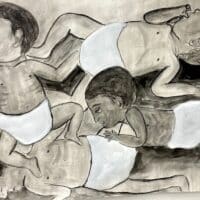-
The students will not tolerate hypocrisy: The Eighteenth Newsletter (2024)
From universities to grassroots movements worldwide, young people are fighting back against the complicity in Israel’s genocide of Palestians, setting up encampments and facing repression with resilience. This resistance is rooted in a long tradition to impose clarity upon a world encrusted by compromise, from the movement against apartheid in South Africa to China’s May Fourth Movement.
-
How Africa’s national liberation struggles brought democracy to Europe: The Seventeenth Newsletter (2024)
African liberation struggles not only won independence in their own countries; they also defeated Estado Novo colonialism, which spurred the Carnation Revolution 50 years ago.
-
The premises of the diplomatic mission shall be inviolable: The Fifteenth Newsletter (2024)
From Israel’s bombing of Iran’s embassy in Damascus to Ecuador’s raid on the Mexican embassy in Quito, leaders feel emboldened by the impunity granted by the Global North to disregard diplomatic norms and respect.
-
Thousands have lived without love, but not one without water: The Fourteenth Newsletter (2024)
Amid the intensifying water crisis that plagues billions of people across the world, Israel is using water as a weapon in its war against Palestinians by denying access and destroying infrastructure.
-
Palestinians will remain on Palestinian land: The Thirteenth Newsletter (2024)
Jared Kushner joins the chorus calling for Israel to expand its occupation to Gaza’s waterfront through forced displacement, but, if history is any judge, Palestinians will remain.
-
Conquest, war, famine, and death hit you straight in the heart: The Eleventh Newsletter (2024)
In the face of looming famine, Biden’s promise to build a ‘temporary pier’ to allow aid into Gaza is hollow, undermined by his country’s complicity in Israel’s genocide against Palestine.
-
There will be reading and singing and dancing even in the darkest times: The Tenth Newsletter (2024)
Amidst the genocide against Palestinians and the war in Congo, human beings cling to hope. Saleem, in Rafah, dreams beyond the present, of Red Books Day and a brighter future.
-
The nobodies are worth more than the bullet that kills them: The Ninth Newsletter (2024)
On 20 February, United States Ambassador to the United Nations (UN) Linda Thomas-Greenfield had the terrible job of vetoing Algeria’s resolution for a ceasefire in Gaza. Amar Bendjama, the Algerian Ambassador to the UN, said that the resolution he tabled had been shaped by conversations amongst the 15 members of the UN Security Council.
-
If I understand the world, I can march to change it: The Eighth Newsletter (2024)
In December 2023, the Organisation for Economic Cooperation and Development (OECD) released a stunning report showing that, since 2018, literacy in reading and mathematics has declined amongst the world’s students.
-
A word like peace is faster than the bullet of war: The Seventh Newsletter (2024)
On 26 January, the North Atlantic Treaty Organisation (NATO) announced the start of a massive military exercise called Steadfast Defender 2024 that will continue until the end of May.
-
Dawn is breaking out all over, and the World is waking up: The Sixth Newsletter (2024)
On 2 February 2024, the people of Venezuela celebrated the twenty-fifth anniversary of the Bolivarian Revolution.
-
The only right that Palestinians have not been denied is the right to dream: The Fifth Newsletter (2024)
On 26 January, the judges at the International Court of Justice (ICJ) found that it is ‘plausible’ that Israel is committing a genocide against Palestinians in Gaza.
-
The Global South takes Israel to court: The Third Newsletter (2024)
On 11 January, Adila Hassim, an advocate of the High Court of South Africa, stood before the judges of the International Court of Justice (ICJ) and said: ‘Genocides are never declared in advance. But this court has the benefit of the past 13 weeks of evidence that shows incontrovertibly a pattern of conduct and related intention that justifies a plausible claim of genocidal acts’.
-
Why I believe what I believe about the Chinese Revolution: The Second Newsletter (2024)
I have tried not only to provide some facts to guide our discussion but also to thread them into the theory of socialism that I believe is most attractive.
-
We need to reverse the culture of decay and march on the street for a culture of humanity
The final months of 2023 pierced our sense of hope and threw us into a kind of mortal sadness.
-
The World’s Economic Centre of Gravity is returning to Asia: The Fifty-Second Newsletter (2023)
In October 2023, the United Nations Conference on Trade and Development (UNCTAD) published its annual Trade and Development Report. Nothing in the report came as a major surprise. The growth of the global Gross Domestic Product (GDP) continues to decline with no sign of a rebound.
-
Transnational corporations provoke a single scream of horror that runs through the vertebrae of the world: The Fifty-First Newsletter (2023)
Within the United Nations, there is a little-known debate about the status of global tax regulation.
-
We fight with our eyes. We plant seeds with our hands. We will watch the wheat fill the valley: The Fiftieth Newsletter (2023)
Culture is a vital centre of struggle. It is where people see who they are, learn what they are capable of, and dare to imagine what they would like to build in this world. Art itself does not change the world, but without bringing imagination to life through art, we would resign ourselves to the present.
-
Your enemies destroyed one Palestine; my wounds populated many Palestines: The Forty-Ninth Newsletter (2023)
The indecency of the phrase ‘humanitarian pause’ is obvious. There is nothing humanitarian about a brief interlude between bouts of horrendous violence. There is no true ‘pause’, merely the calm before the storm continues.
-
The dangerously appealing style of the Far Right: The Forty-Eighth Newsletter (2023)
Before he won Argentina’s presidential election on 19 November, Javier Milei circulated a video of himself in front of a series of white boards.


![Maria Helena Vieira da Silva (Portugal), A Poesia Está Na Rua I [Poetry Is out on the Street I], 1974.](https://mronline.org/wp-content/uploads/2024/04/Screenshot-2024-04-25-at-11101 PM-200x200.png)

